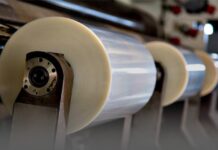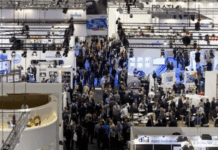After its introduction in the early 20th century, plastic revolutionized the modern packaging world due to its unique benefits as a material. With a relatively low cost, simple manufacturing process, and a long list of potential applications, plastics transformed the way the world thought about packaging. However, plastic packaging is fundamentally evolving to adapt to changing social attitudes concerning the environment despite the material’s versatility and ability to be repurposed for a variety of uses.
The Ellen Macarthur Foundation says that most plastic is only used once in its lifetime, meaning 95% of its material value is lost, adding up to a global loss of US$ 120 billion annually. Moreover, civil society has become significantly more aware of the impact plastic packaging can have on the environment. Heightened media scrutiny over the last couple of years, fueled by critical documentaries and the age of information, has also resulted in a shift in consumer attitudes. Meaning brands must adapt their packaging strategies to ensure they remain corporately responsible and competitive.
Surging economic growth and industrialization across Asia, combined with China’s single-use plastic waste ban and its previously implemented ban on waste imports, are driving changing attitudes towards protecting the planet. Environmental waste and sustainability are now sitting more prominently with brands operating in the Asian region when designing and developing their packaging.

Parkside has a manufacturing site in Malaysia
Parkside, a UK based global supplier with manufacturing sites in both the UK and in Malaysia in Asia, prides itself on being a sustainable innovator. It strives to lead the market in the development of truly sustainable packaging solutions. This ethos has led to the development of several innovations that meet the needs of today’s Asian brands, retailers, and consumers.
Compostable packaging
After eight years of dedicated research and innovation, Parkside has created its Park2Nature range, a ground-breaking collection of home and industrial compostable packaging solutions, with suitability for a variety of FMCG applications. The innovative packaging design enables brands to significantly enhance their sustainability efforts while offering the consumer the convenience and versatility that is so crucial to retail success.
Park2Nature is made from sustainably sourced materials, including wood-pulp waste produced from eucalyptus plantations. Comprising a multi-layer laminate made of paper, cellulose, and a biopolymer, the compostable packs, provide high aroma, oxygen, and moisture barriers to extend shelf life and maintain flavor, matching the performance of conventional flexible packaging designs.
Park2Nature is compostable in 26 weeks
After use, however, consumers can place the packaging in a home compost pile, where ambient conditions enable the materials to break down within 26 weeks fully, a process accredited by TUV (formerly Vincotte). The substrates are also rigorously tested for eco-toxicity to ensure they have no adverse effects on the environment. If organic recycling (industrial composting) is available too, the range is suitable for this disposal route.
Due to the multi-material nature of typical flexible packaging laminates, most flexible packaging today ends up being incinerated or finding its way into landfill post-consumer use. Compostable packaging offers a credible alternative for retailers and packers, providing all the benefits of strength, performance, and graphic appeal while truly remaining sensitive to the needs of the environment.










